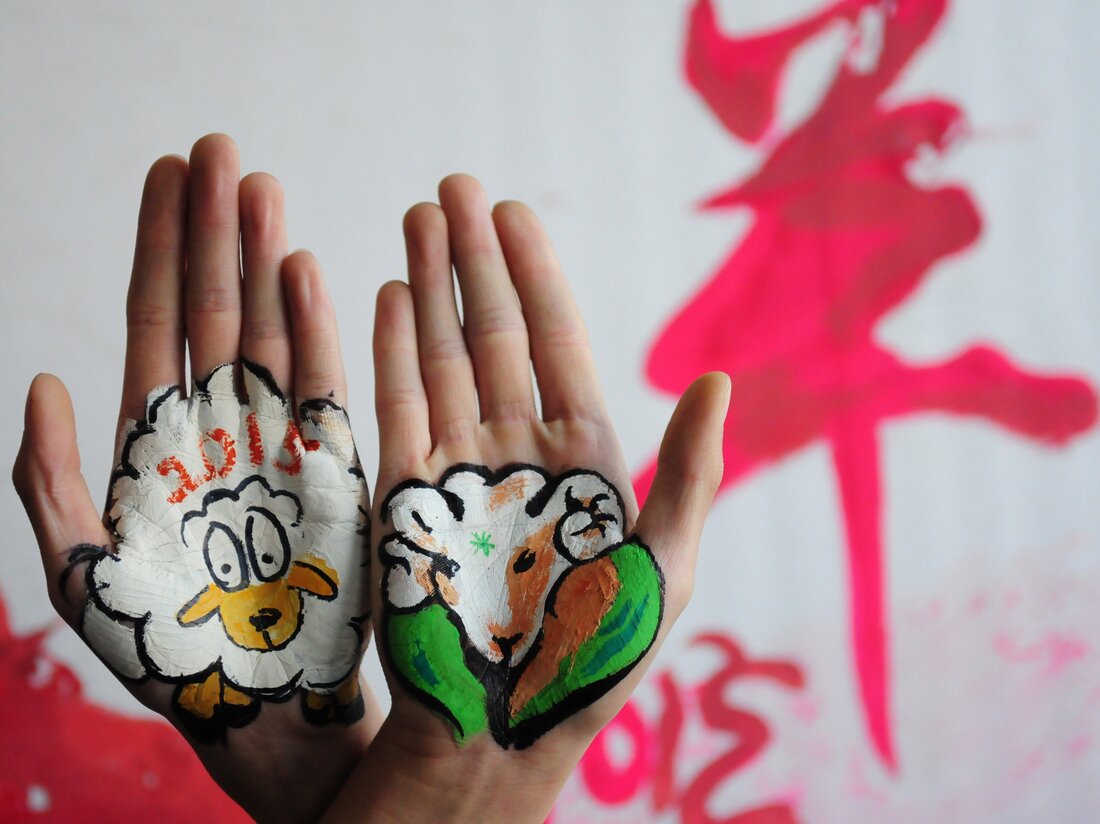
Will the real 2015 animal please stand up? [AFP/Getty Images[
On Feb. 19, Chinese from around the world welcomed the year of the sheep, also celebrated as the year of the goat or ram. In China, in what some call the world’s largest migration, many Chinese traveled great distances by train, bus and motorcycle to gather with families and celebrate. Chinese leaders also welcomed the new year, sending their best wishes to the Chinese people. Other leaders, such as Hong Kong Chief Executive C.Y. Leung, chose to use the zodiac sign of sheep to send a message to Hong Kong citizens, describing sheep as “widely seen to be mild and gentle animals living peacefully in groups”, and arguing for a gentler citizenry given the demonstrations which roiled Hong Kong last year. Leung opined, “In the coming year, I hope that all people in Hong Kong will take inspiration from the sheep’s character and pull together in an accommodating manner to work for Hong Kong’s future.”
While media around the world mocked his message to Hong Kong residents to become less democratic and behave more like sheep, state media in Vietnam was also busy sending messages in celebration of the Tet holiday, which welcomes the year of the goat and begins on the same day.
State media in Vietnam clearly showed their preference for the more combative goat, issuing a rare series of articles on Feb. 17 to commemorate the anniversary of the 1979 border war with China. The day before, Prime Minister Nguyen Tan Dung vowed to protect Vietnam’s sovereignty over the East Sea, condemning Beijing for the construction of artificial islands in its perceived bid to control fishing and oil resources. Prominent Vietnamese economist Le Dang Doanh also spoke out on his Facebook page, posting “February 17 1979 is the painful day for our nation.”
The border war in Vietnam’s northern provinces was initiated by China following the ousting of the Khmer Rouge regime in Cambodia, which had been backed by Beijing. Otherwise known as the Third Indochina War, the battle lasted almost four weeks, claiming tens of thousands of lives and resulting in Beijing’s withdrawal of troops and Vietnamese forces remaining in Cambodia. Previous attempts by Vietnamese citizens to commemorate the anniversary are typically prevented by police.
Difficulties in Vietnamese-China relations are typically smoothed over or not addressed by Vietnamese media, although in recent years the Vietnamese state media has drawn attention to and criticized Beijing for its aggressive actions in waters off the coast of Vietnam which are also claimed by China. Vietnamese state media reaction was particularly pronounced after China moved an offshore oil drilling rig just off the coast of Vietnam in May of last year, which some analysts point to as the impetus for the anti-Chinese riots which followed.
Despite other wartime battles being publicly commemorated in Vietnam, such as the 1954 Dien Bien Phu victory in the First Indochina War over the French, the Chinese remain highly sensitive to official Vietnamese commemoration of wartime victories. Beijing specifically asked Hanoi not to commemorate Feb. 19 when the two countries normalized relations in 1991. Hanoi has since been quiet on the subject, not wanting to upset a major trading partner, but recent anger over Beijing’s actions to assert its claims in the East Sea have triggered a backlash. Whether or not this represents a new assertive independence from Hanoi will largely depend on whether Beijing expects the Vietnamese to act more as sheep or as the more feisty goat in the new year.